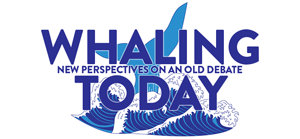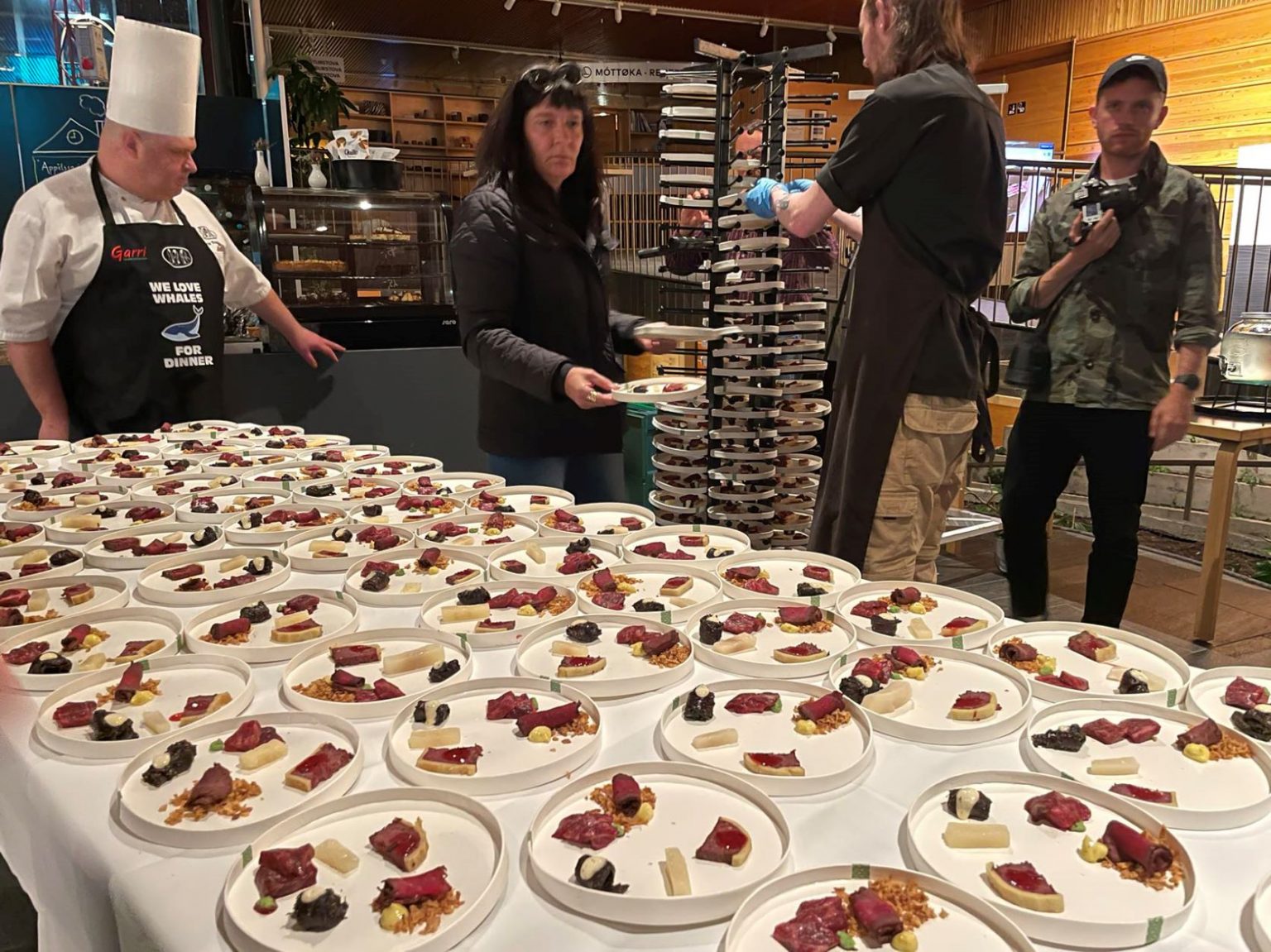The North Atlantic Marine Mammal Commission, NAMMCO, is a rare international organization that openly supports discussions around hunting ocean mammals held to be sacrosanct in much of the world, such as whales, dolphins and seals.
This year (2022) is the 30th anniversary of NAMMCO’s founding. To mark the event, the group held a conference and food event in the Faroe Islands, with attendees from both member countries and other nations, both pro and anti-whaling, around the world.
Aya Matsuda, a student at the prestigious Matsushita Institute of Government and Management reports on the meeting in a series originally written in Japanese for the Suisan-Keizai Daily News.
Part 3 of 3
Part 1: NAMMCO at 30: Supporting Discussions on the Sustainable Use of Marine Mammals
Part 2: NAMMCO at 30: Marine Mammals in Cultural Traditions and Identity
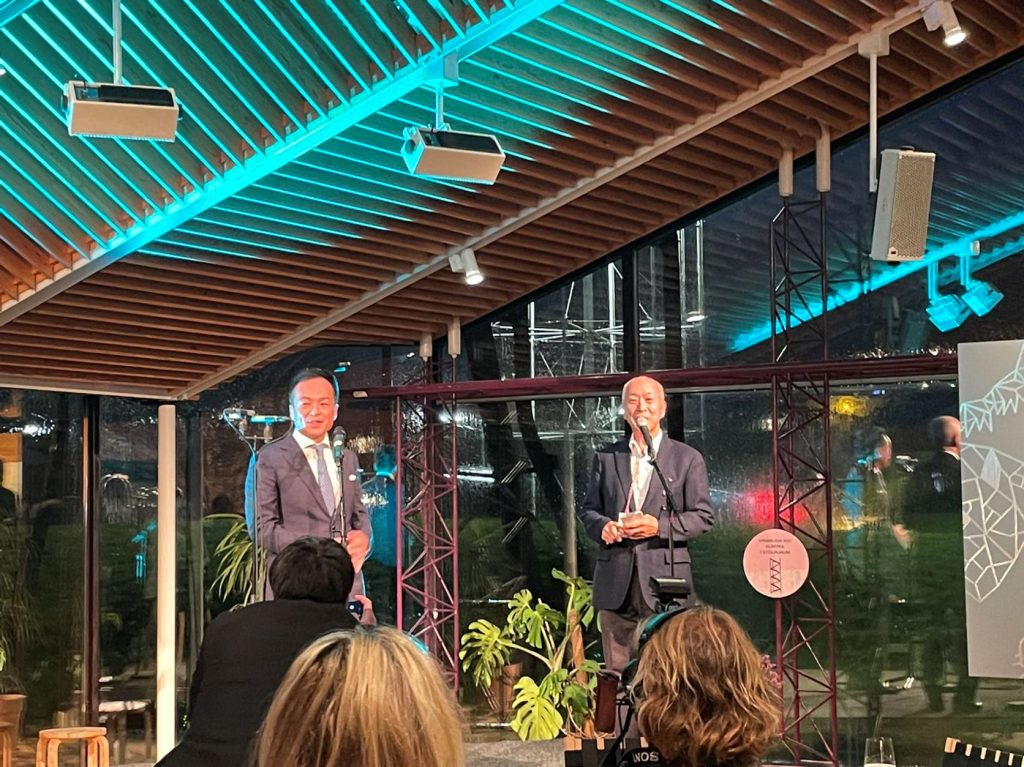
In the Faroe Islands, meat from pilot whales taken during a drive hunt is divided among the participants. Each then takes the meat straight to their homes to eat.
Meat from a hunt is shared even among those who didn’t participate. Only a small amount is left over to be sold at local supermarkets.
The amount that individuals receive varies according to their status in society. Policemen receive large allotments.
The pilot whale drive hunts in the Faroe Islands are more of a subsistence custom than an economic enterprise. There are no hard statistics, but roughly 25% of the protein that local inhabitants consume is said to come from the drive hunts.
In addition, the population of the Faroe Islands is not decreasing but rather increasing. So that the amount of pilot whale meat given to each member of the community is gradually declining.
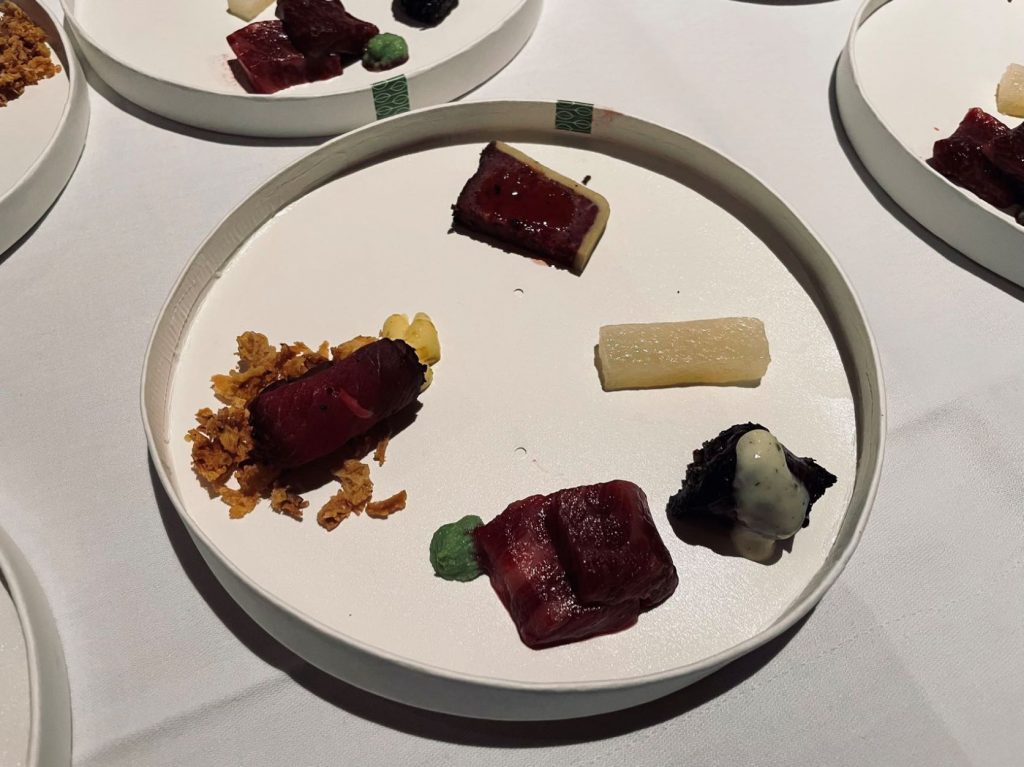
Trying New Things at NAMMCO: An Acquired Taste for Dolphin
The frequency with which dolphin meat is consumed in the Faroes seems to vary by location. Some individuals ate dolphin meat for the first time in 2021, after the large scale hunt that drew so much attention.
“I don’t really like the fatty meat from dolphins, but their meat is better than that from pilot whales…”
“I don’t really like it boiled…”
Tastes vary widely. But one sure thing is that in the Faroe Islands, dried and salted is the main way to eat pilot whale meat.

NAMMCO’s Gastronomic Showcase
At the NAMMCO event, everyone was excitedly anticipating the last evening. Featuring a “Gastronomic Showcase,” the participants could try and compare whale and seal dishes from various countries.
The showcase began with introductory remarks from Shintaro Maeda, the mayor of Shimonoseki City in Yamaguchi Prefecture. He spoke passionately about “Living with Whales,” the slogan of his city.
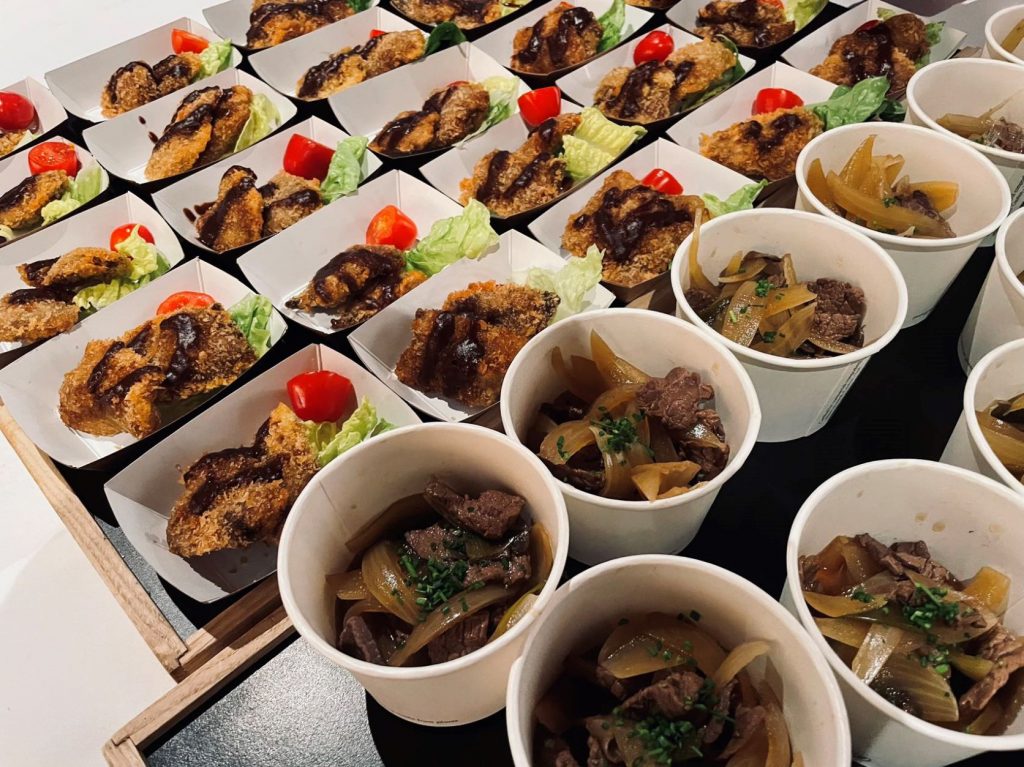
Chefs from each of six parts of the world – Iceland, Norway, Japan, Canada, Greenland, and the Faroe Islands – prepared two dishes each, making the showcase a taste test of 12 different dishes total.
My stomach gradually filled up, even though the individual dishes were small. As I moved further and further around the globe and came into contact with new ingredients, new spices, and new ways of cooking, my taste buds became more and more stimulated. I was able to enjoy a wide variety of foods.
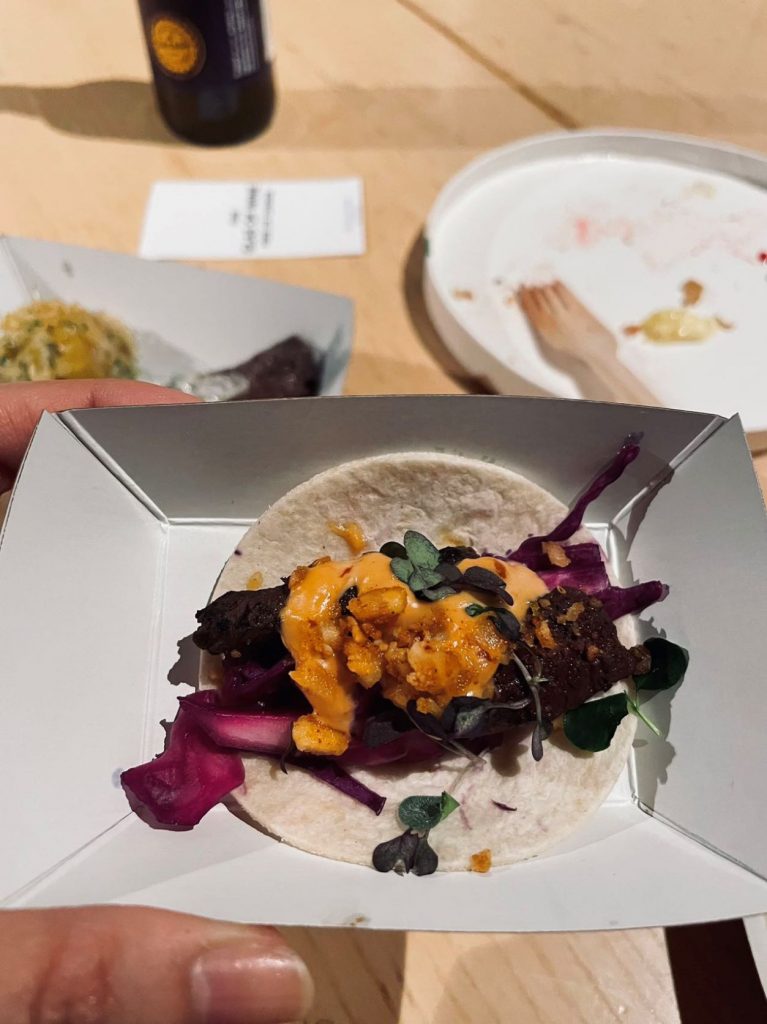
Only at NAMMCO: Whale Tacos and Seal Meat Dishes
People’s food choices steadily broaden as they experience as their mobility increases and they experience the changing demands and tastes of various societies. At the same time, the food chain is complex. The contradictions contribute to food loss and other food-related issues. Making the food chain economically and environmentally viable requires the collective knowledge and wisdom of mankind.
Thanks to the beautiful food court provided by NAMMCO, my personal knowledge of whale food culture expanded considerably. It was an enjoyable and extravagant evening.
My personal favorite was the tacos made from minced minke whale meat provided by Norway. It was something you still can’t eat in Japan.
The two dishes from Canada were made with seal meat and had a gamey flavor that is very difficult to describe. It was totally different from any meat I have eaten in the past, and my palate couldn’t adjust. I was unable to finish the dishes, but the experience will help develop my tastes in the future.
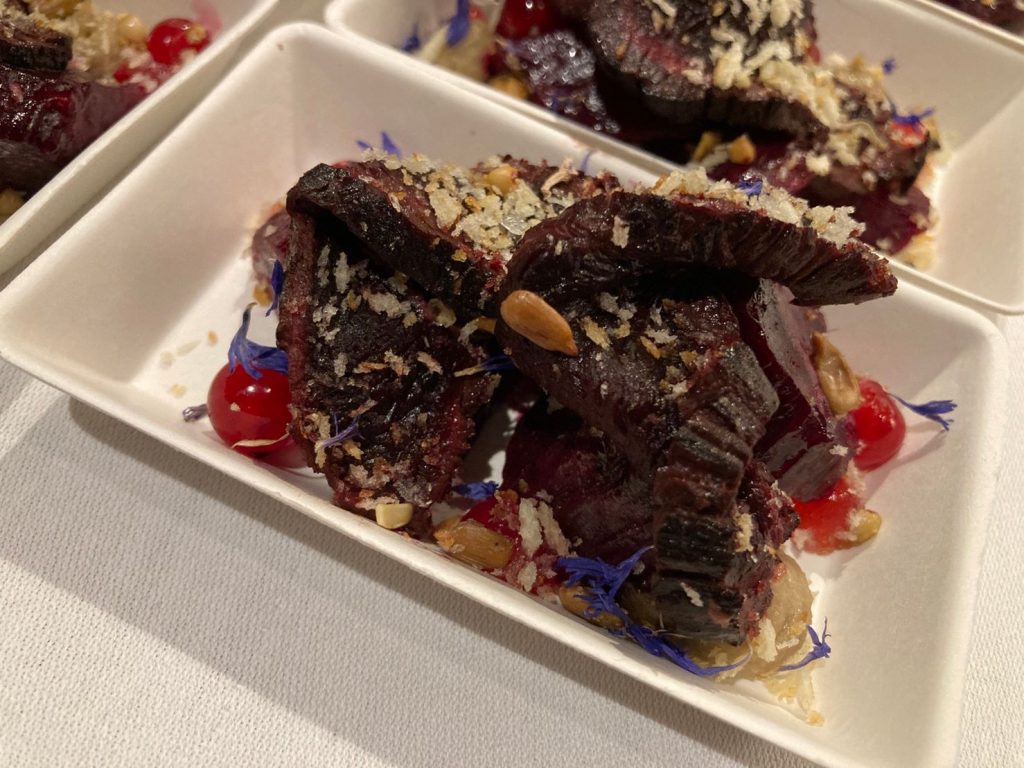
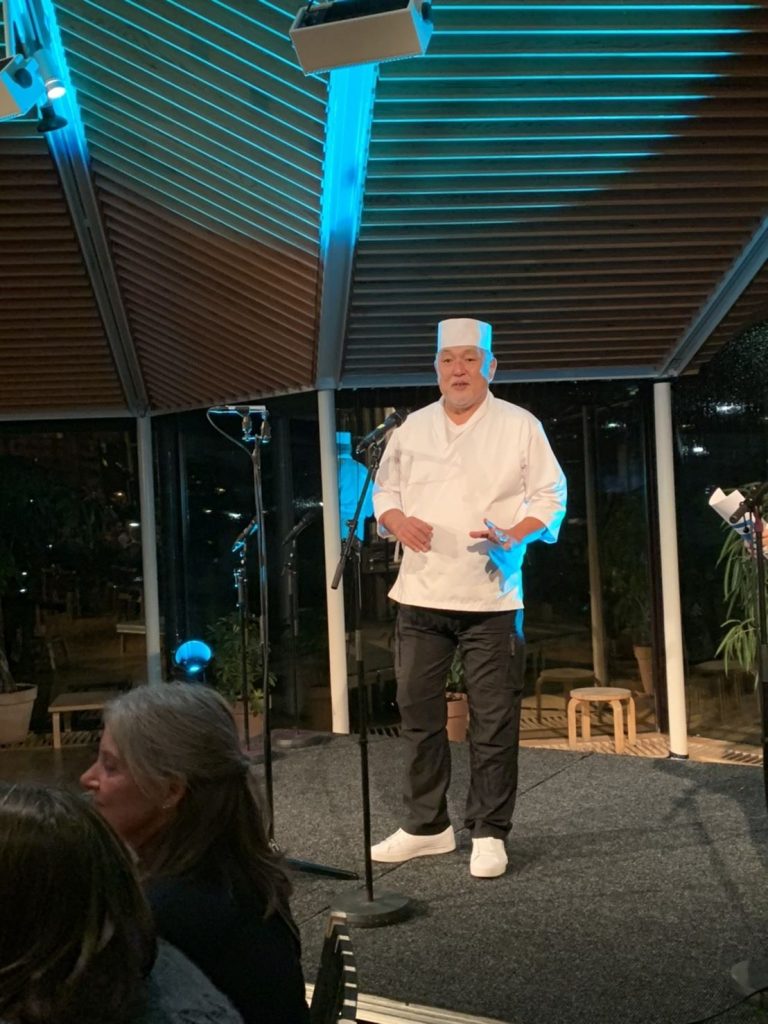
NAMMCO’s Overlapping Food Cultures
Imported whale from Norway was selling for 150 Danish krone (DKK) per kilogram, or roughly 3,000 JPY (21 USD). That is about the same price as beef in Japan.
In the Faroe Islands, about 97% of exports are related to marine products. And a fourth of the economy is dependent on the fisheries and marine products industries. Recently the same is true for other countries in Northern Europe, and salmon aquaculture is increasing.
It is my hope that many more Japanese will visit the Faroe Islands blessed with beautiful nature and amazing people. Access from Japan is slightly inconvenient. It takes two full days to reach the local airport, with an overnight stay in Copenhagen required regardless of which airline one chooses.
The runway at the Faroe Islands airport is very short, and because the local weather is unpredictable, my plane had to circle in the air for 20 minutes. As we watched the clouds for clues, the crew announced that we may have to return to Copenhagen, causing much consternation among the passengers. Everyone applauded we were able to land. But the fact that we landed on a Sunday meant that no shops were open anywhere. It was all part of the experience.
A Need for ‘Sexy’ Whale Meat
The local government in the Faroe Islands hopes to hold more international events such as this one. Its goal is to become a central locale for international conferences in Northern Europe, while also pouring more effort into the tourism sector.
At the same time, a Norwegian from a whale processing company said the local whale industry is in a desperate struggle. He added that in order to increase domestic demand, local firms should think about “sexy” designs for their packaging and advertise on TikTok and other social media aimed at young audiences. Comparing tackling the issues facing the whaling industry to running marathons, he said that immediately after one was finished another began.
I realized that the issues faced by the whaling industry are not unique to Japan, which greatly encouraged me. In attending this NAMMCO event I was able to meet with individuals from different backgrounds, all facing different circumstances. It was difficult to grasp the whole picture, so instead we debated with limited knowledge.
There was no conclusion. And I felt as if endless discussion would be required to reach one.
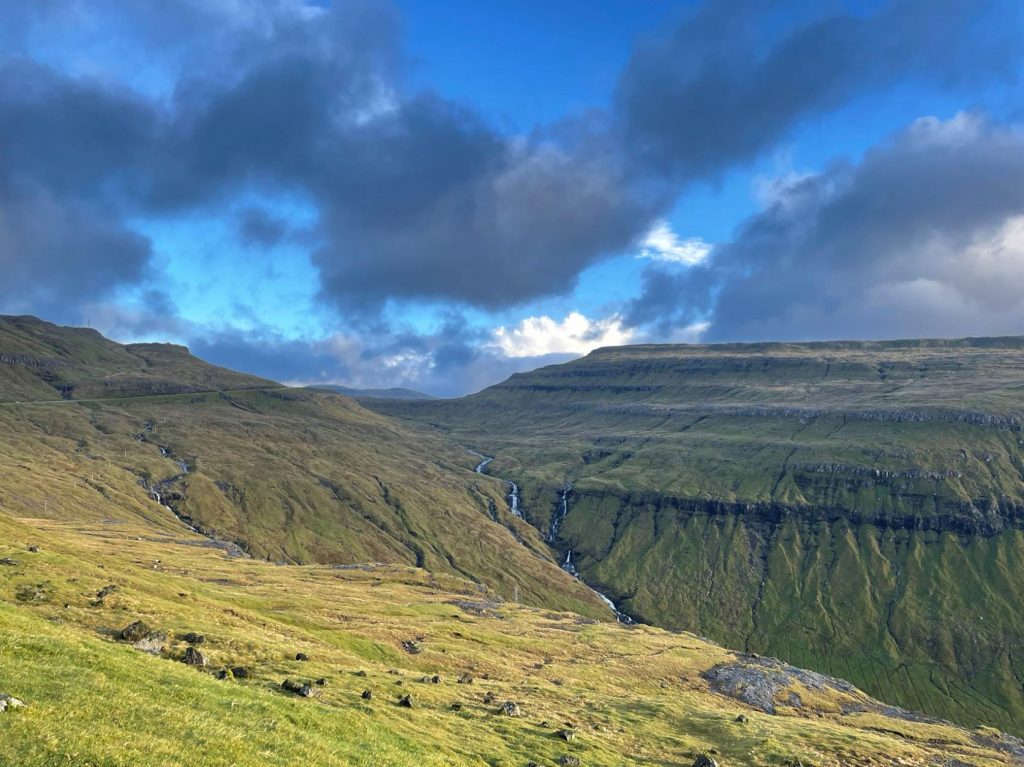
NAMMCO Takeaway: Need for a Long-Term Vision
For mankind to survive, it is obvious that we must utilize the oceans, which cover 70% of the planet, and provide benefits beyond marine products. That is why it is crucial to identify the key policy points that should be taken into consideration. Japan’s politicians and related officials should clearly establish a long-term vision, and then work to enunciate it and gain the understanding of the outside world.
There is a large amount of information available on the health effects, nutrition, and ecology of marine mammals. Whether to consume them as food or not is a choice that should be left to the individual.
I was impressed with the importance of having individuals from all over the world who are concerned about the fate of marine mammals and humanity gather and discuss them. This is needed to grasp the current state of affairs and to show empathy for each other’s values and ideas. Experiencing NAMMCO provided me with a far deeper understanding of the issues.
Aya Matsuda
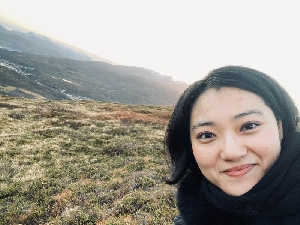
Aya Matsuda is a student at the prestigious Matsushita Institute of Government and Management. Born in Hiroshima, she has an international background, having studied at Ohio State University as well as Peking University. She is currently focused on Japan’s food safety and national independence and Japan through reviving its primary industries, particularly its fishing industry.
This report was originally written in Japanese for the Suisan-Keizai Daily News. Read the report in Japanese here.
RELATED:
- Taiji Dolphin Hunt Criticism Evolves Into Animal Rights Debate
- Revisiting the Roots of the Whaling Issue: Sustainable Use, Environmental Protection
- OPINION: 10 Years After ‘The Cove,’ It’s Clear That Activist Harassment, Cultural Invasion of Japan Town Have Backfired
(This article is published in cooperation with the Institute of Cetacean Research. Let us hear your thoughts in our comments section.)
Author and all photos: Aya Matsuda (© Suisan-Keizai by Aya Matsuda)
